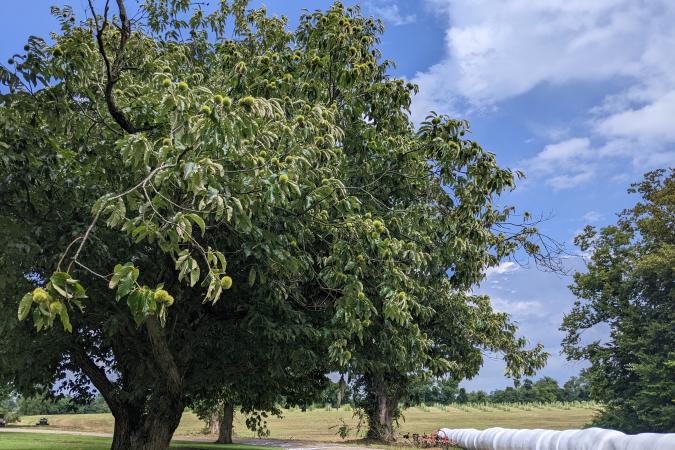Meet the Business Managers
Propagate was founded by Ethan Steinberg (CEO), Jeremy Kaufman (COO), and Harrison Greene (CRO) after their combined experience in vegetable production, dairy, timber, supply chains and marketing left them seeking a better agricultural model to support health and wellness. They spent time traveling around the country to meet with farmers, producers, and land owners, and these conversations steered them towards agroforestry as a solution—in particular, agroforestry systems that could achieve profitability through fruit, nut, and timber production.
By founding the Propagate platform, the trio wanted to fundamentally address some of the challenges that prevent farms from transitioning to diversified, perennial-based production models, in particular the lack of quality tools for planning and analysis. Their unique end-to-end business model helps farmers and landowners mitigate risk during the transition by providing expert help at every stage: software for design and management, and on-site business support for planting, harvesting, supply chain sourcing, and marketing.
You can meet the rest of Propagate’s team members here.
Regenerative & Sustainable Practices
Transitioning conventional monoculture production to diversified agroforestry is one of the single most impactful land-use changes in terms of soil health, carbon sequestration, and agroecological biodiversity. One Propagate client is in the process of converting 1800 acres formerly planted in commodity corn and soybeans to perennial chestnut production.
Propagate recently was part of a USDA partnership to advance agroforestry as a climate-smart farming solution. Agroforestry currently represents less than 1% of US agriculture, but due to its ability to sequester 2-5 tons of carbon per acre annually, it holds tremendous potential to help reach emission reduction goals, improve water quality, and increase agricultural profitability.
- To date, Propagate has supported over 65 farms and the planting of 100,000 trees in 15 states
- Mixed land use diversifies farm incomes, making agricultural producers more profitable and resilient
- Perennial cropping results in less soil disturbance, improved soil health, and more carbon sequestration
- Alleys between perennial crops can be planted with vegetables, hay, or grazed by animals, all of which benefit from the shade and wind infiltration provided by trees and shrubs
- Propagate’s Farm Services team uses agricultural practices like compost application to encourage biological activity in farm soils and nutrient cycling.

